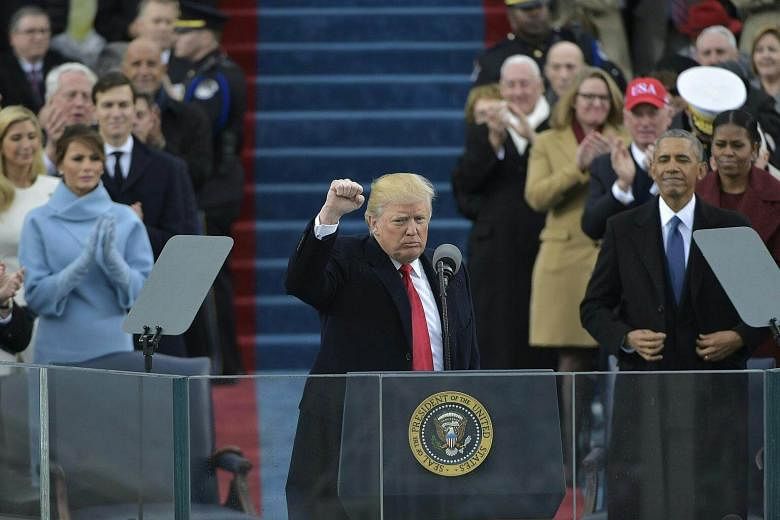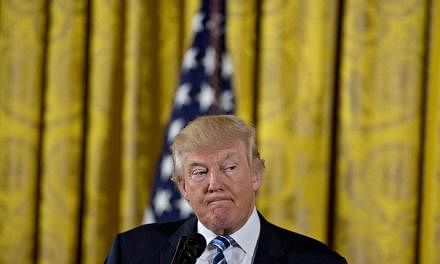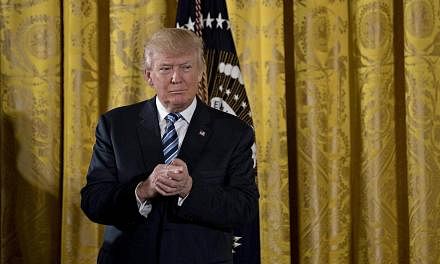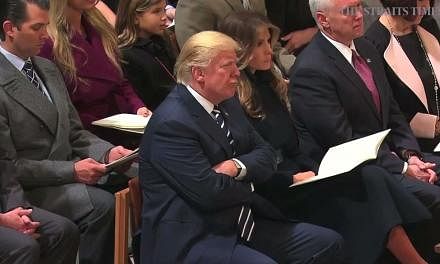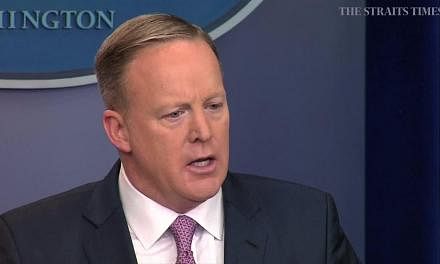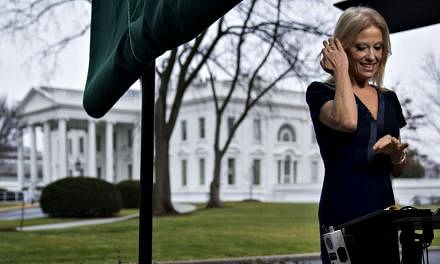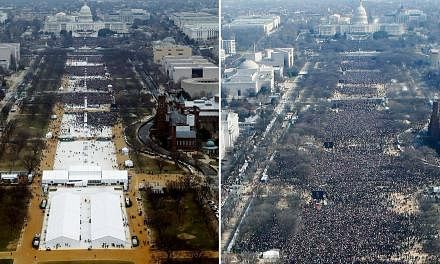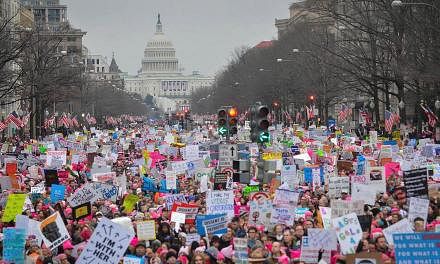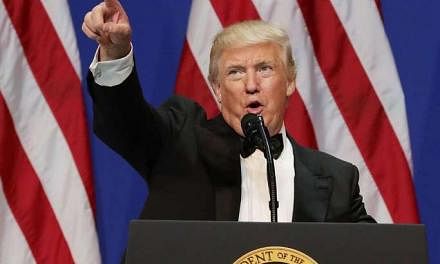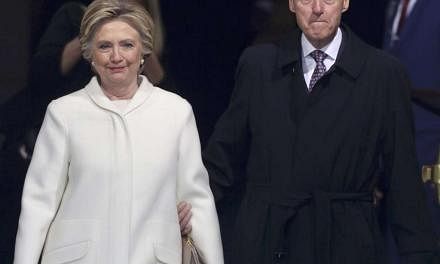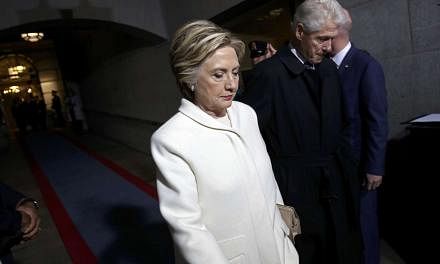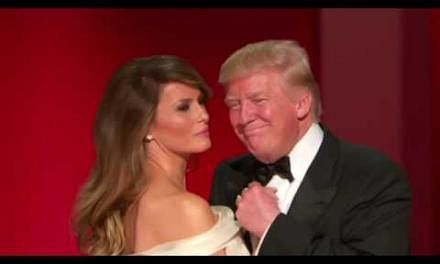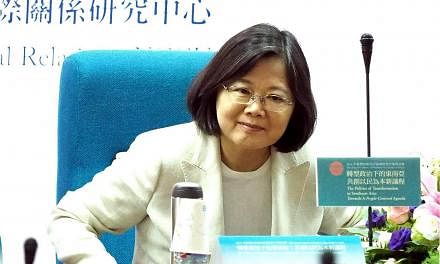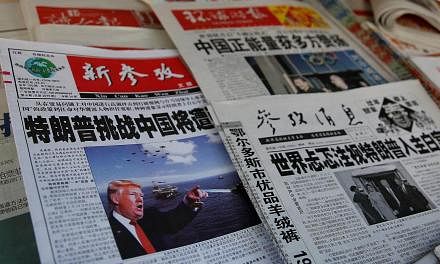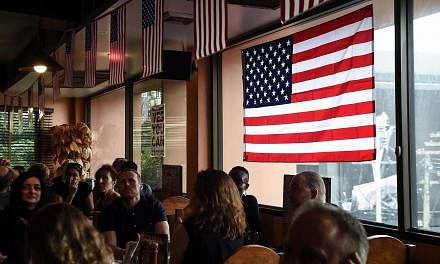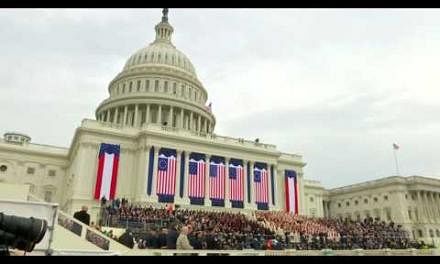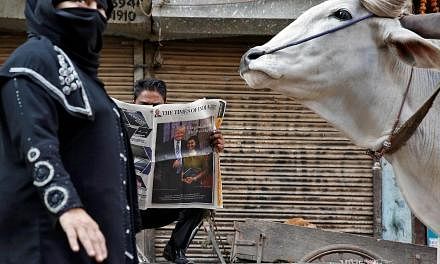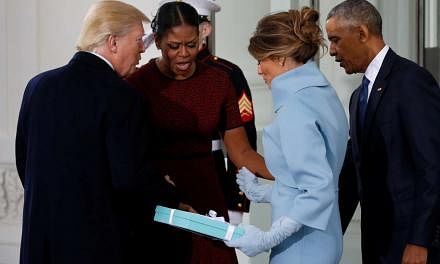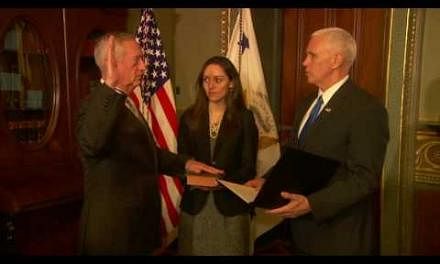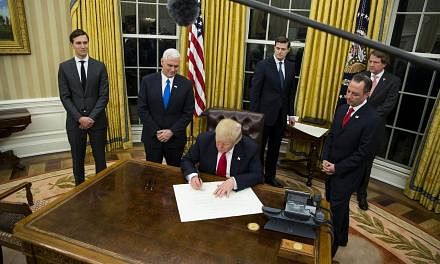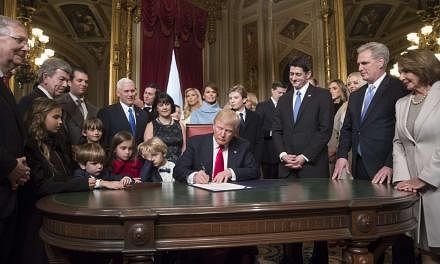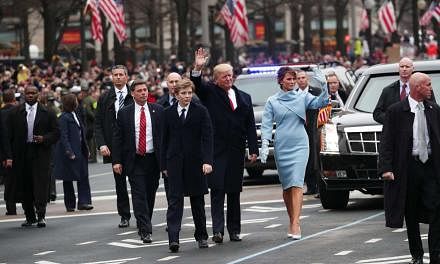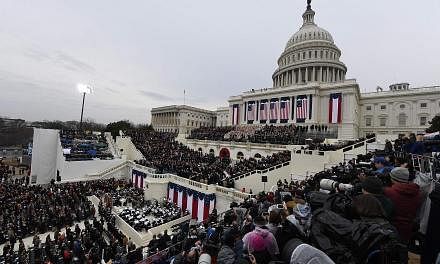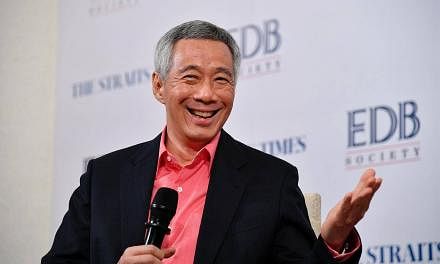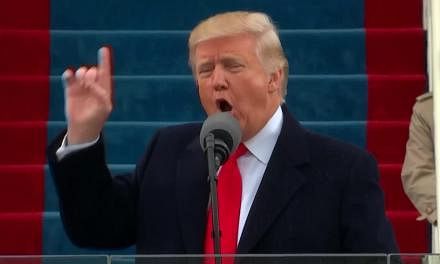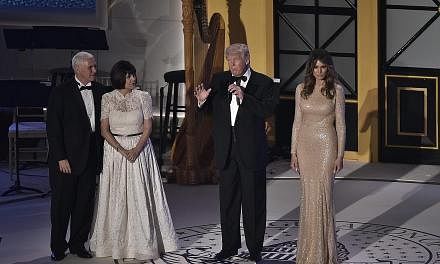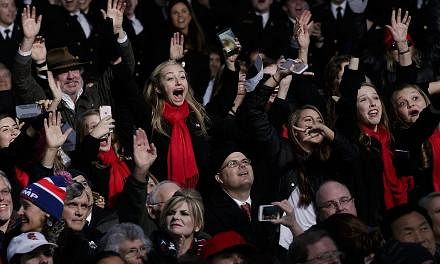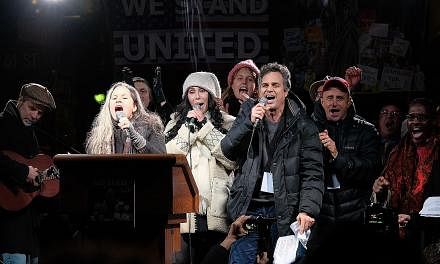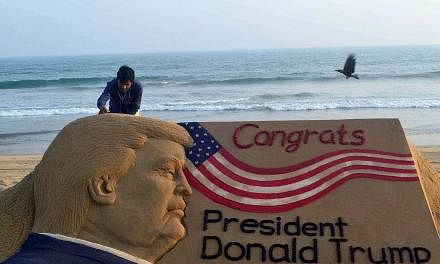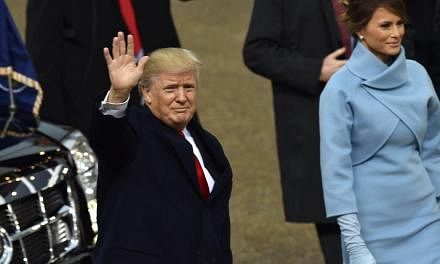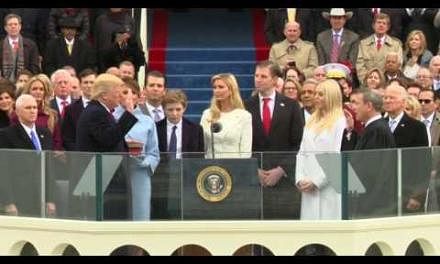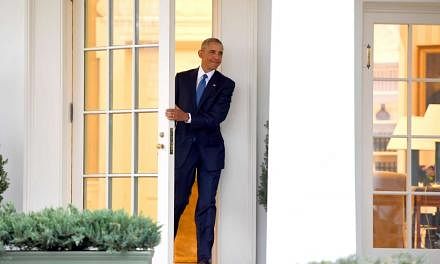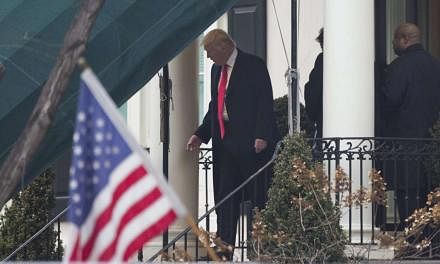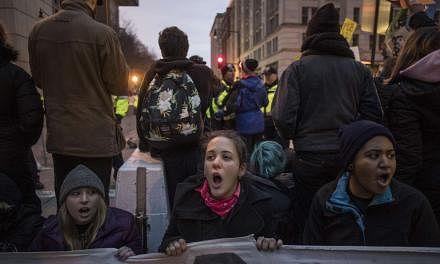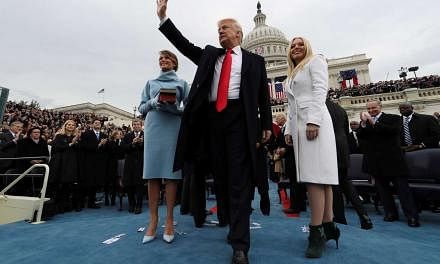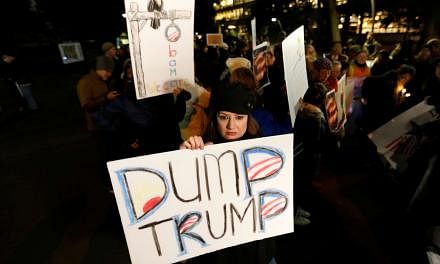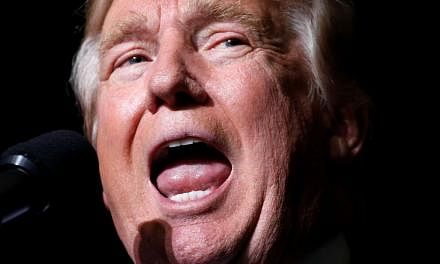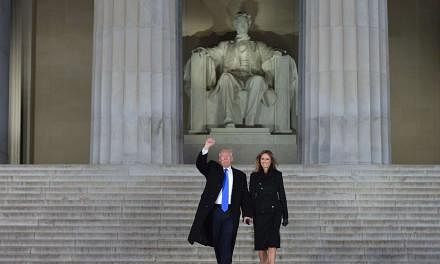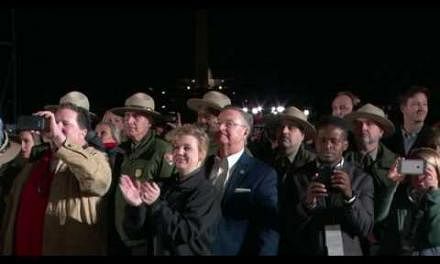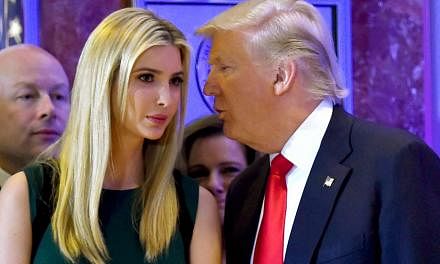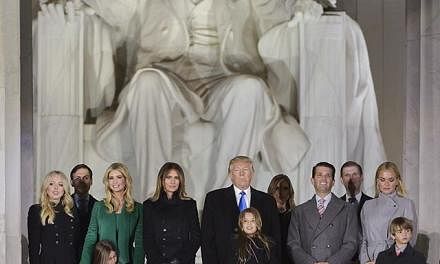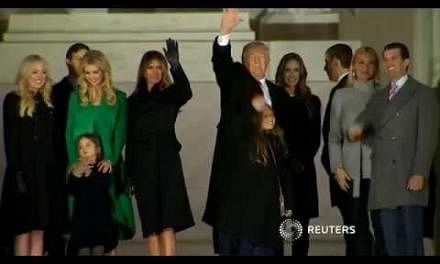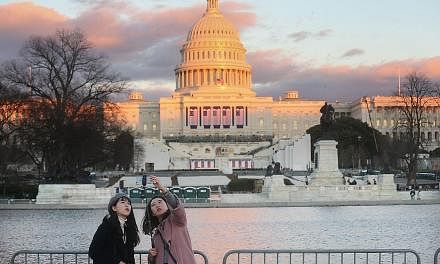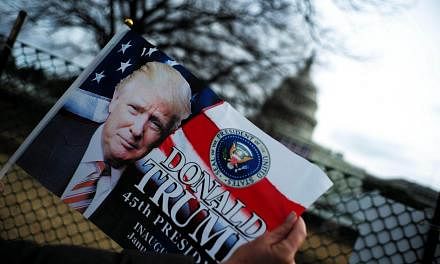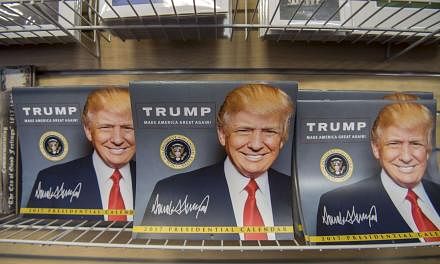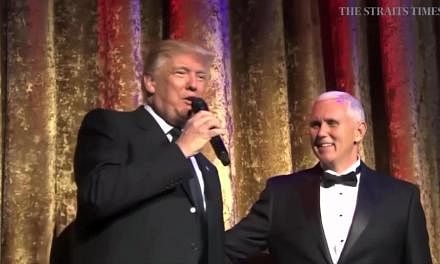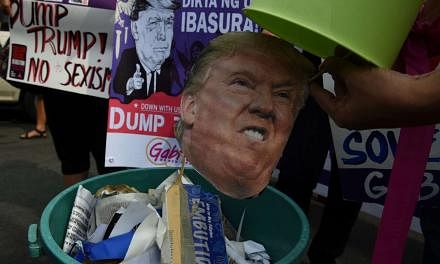At merely 1,400 words, President Donald Trump's inauguration address was the shortest in almost half a century of American history.
But it more than made up for brevity by being among the most assertive inauguration speeches in modern memory.
Foreign governments are now on notice that the Trump administration will unremittingly pursue an 'America first' policy. Yet they are none the wiser as to what this may actually mean in practice.
Having just triumphed at ballots and not needing to think about re-election for another four years, most presidents devote their inauguration addresses to appeals for national reconciliation, or to outlining the grand themes of their administration.
Not so with Mr Trump, whose address was indistinguishable from the stumping speeches he delivered during the electoral campaign; his were the words of someone who appears to be still fighting to win power, rather than being the speech of a president who not only controls the White House, but is also in charge of a Republican party which dominates both houses of Congress.
Mr Trump's fighting language was evidently intended to convey the message that his inauguration was no mere transfer of power from one elite group to another, but a genuine transfer of power from the US government "to you, the American people" as the president put it.
Still, the foreign policy segment of the speech was largely composed of boilerplate phrases often heard before and a list of the new administration's frustrations with the world outside its borders, without the offer of realistic plans for action.
Noteworthy by their absence were any mentions of America's existing allies, either in Europe or Asia, or even closer to home, in North America. Nor was there any mention of foreign policy values or principles which the administration may wish to uphold.
Instead, the foreign universe which President Trump sketched out in his speech is an anarchic world in which other countries inflict "ravages" on the US by "making our products, stealing our companies, and destroying our jobs".
It is also a world in which foreigners take advantage of the US by getting American taxpayers to protect their borders and pay for foreign infrastructure; the wealth of ordinary Americans "has been ripped from their homes and then redistributed across the entire world", claimed Mr Trump.
No hint that foreign trade may be mutually beneficial, and no acknowledgment that foreign military deployments may actually serve America's own security needs.
Mr Trump vows to put an end to all this by concentrating on the "protection" of the US borders which "will lead to great prosperity and strength"; how other countries may react to this protectionist offensive was not something which the new president appeared ready to contemplate.
The new US administration, vowed Mr Trump, will "reinforce old alliances and form new ones", perhaps an oblique reference to the possibility of forging friendly links with Russia, one of the few themes on which the new president expressed strong views throughout the recent electoral campaign.
But that cooperation would be very specific: on counter-terrorism, and not on other burning security problems such as nuclear proliferation, which did not even deserve a mention.
But even on counter-terrorism, Mr Trump's expectations from the world are very specific and controversial: He promises to "eradicate radical Islamic terrorism", from the "face of the Earth", and do so "completely".
Previous US administrations usually eschewed making an explicit connection between the Islamic faith and terrorism, and invariably refused to put a deadline on efforts to combat political violence. Mr Trump threw both of these reservations to the wind during his first day in office.
Foreign diplomats based in the US capital are inclined to downplay the importance of the inauguration speech; they claim that, as an outsider to the US political system, Donald Trump was expected to deliver a fighting speech, and this does not necessarily have to become the hallmark of the new administration's foreign and security policies.
Perhaps, although it's noticeable that the new president attracted the loudest applause at his inauguration when he alleged a direct connection between Islam and terrorism, an indication, perhaps, that populist foreign policy stances may turn out to be quite popular.
And although the president's foreign policy objectives remain only poorly sketched out, one theme kept on being repeated throughout the speech: the "right", as Mr Trump put it, of America "putting its interests first".
In short, making America great again, even if this means knocking down others.
